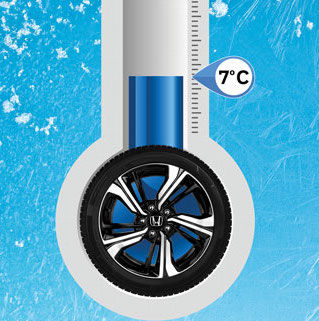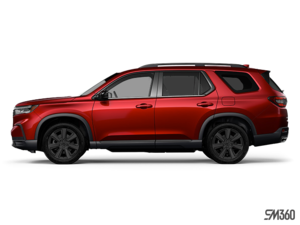It's Tire Change Season. Are you ready?
November 01 2016, Portland Street Honda

As the weather turns colder and the last few leaves from your neighbor's maple tree make their way over to your driveway, you may begin to question whether or not it's time to put on your winter tires.
"Wait, do I even have winter tires? I should probably check the shed..."
You're not alone. As Steve Mertl explains in his Globe and Mail article "Are winter tires really worth it?", Thousands of Canadians are asking themselves (or their uncle Barry who does a lot of driving) when, and if, winter tires are a good idea.
Despite the national pride we take in announcing "we having brutal winters," only the province Quebec mandates that winter tires be installed by Dec. 15.
Between our fearless embrace of "whatever winter has to throw at us" and the ability to buy "All-Season" tires, Canadians are left wondering about the importance and value of bolting on winter tires.
Plus, with the arrival all-wheel-drive vehicles, many Canadians were left thinking they don't need winter tires. The reality, however, all-wheel-drive does not affect your ability to actually brake.
Part of the challenge arises from the average person's inability to test winter tire side by side with all-season tires. However, for anyone who has ever encountered particularly tricky winter conditions with winter tires VS without, the decision is made a lot simpler.
Mertl goes on to explain that, All-season tires are designed to offer ok traction in most conditions but are also built to deliver long tire life and good fuel economy. That sort of design can make a pretty noticeable difference when the weather suddenly turns.
As the temperature drops, the rubber on all-season tires can become more rigid, and therefore less safe for winter driving.
The difference and importance of winter tires (noticeably no longer called just "snow" tires) come from their design.
In his Globe Drive article, Mertl explains it this way:
"Winter tires (identified by the symbol of a jagged peak encasing a snowflake) use rubber compounds that stay pliable at low temperatures and feature tread designs better at clearing snow and slush. Some optimize grip for icy conditions. But all this comes at the cost of tread wear for the softer compound.
Some tire makers now offer a third alternative – the all-weather tire. It carries the winter-tire designation, providing better cold-weather performance than all-seasons but with longer tread life than winter tires."
So in answer to the question:
"If I have All-Season Tires, do I really need winter tires?"
The simple answer is "yes, we advise that for winter driving in the Maritimes you use Winter tires". Overall, winter tires will provide better control on the road during our harsh winter conditions.
Here are a few points to keep in mind:
- Winter tires stay flexible in temperatures below 7°C to provide the necessary traction for cold-weather driving conditions.
- Winter Tires reduce braking distance on cold, wet, ice and snow-covered roads in comparison to all-season tires.
- The traction provided by winter tires enhances the performance of anti-lock braking systems (ABS), vehicle stability assist (VSA), traction control and all-wheel drive in winter conditions.
- Industry data shows that in cold weather, a vehicle equipped with winter tires has approximately a 40% less chance of being involved in a collision versus one equipped with all-season tires.
To find more about why you should make the seasonal switch, and which winter tires are right for you, contact our Parts and Service Department today, and check out Steve Mertl's article at the Globe and Mail here.


